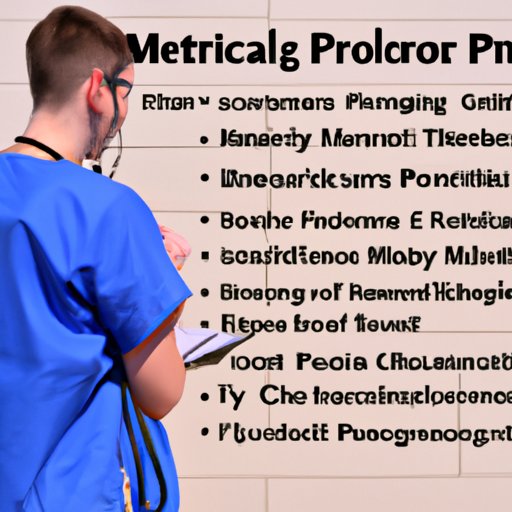Introduction
Medical technology is a field that combines medical science with technology to diagnose and treat diseases. A medical technology major is an undergraduate degree program designed to prepare students for careers in areas such as biotechnology, biomedical engineering, and medical device development. With a medical technology major, students gain a comprehensive understanding of the fundamentals of medical science, as well as specialized knowledge of medical technology.

Benefits of Pursuing a Medical Technology Major
Pursuing a medical technology major can be highly rewarding. Students have the opportunity to work in an ever-expanding field that is making a difference in people’s lives. As medical technology continues to evolve, graduates of this major are in high demand. Those who choose to pursue a medical technology major can also expect to gain invaluable experience working in real-world settings.
Coursework of a Medical Technology Major
The curriculum of a medical technology major covers a range of topics, including anatomy, physiology, pathology, pharmacology, clinical laboratory science, and medical instrumentation. Students learn about the principles and applications of medical technology, as well as how to use medical equipment. They may also take courses in ethics and legal issues related to medical technology.
In addition to core courses, many programs allow students to focus on specialized topics. For example, some programs offer concentrations in areas such as biochemistry, genomics, or bioinformatics. These concentrations provide students with an in-depth understanding of specific topics, which can help them stand out from other job applicants.

Career Opportunities for Medical Technology Majors
Graduates of a medical technology major have a wide range of career options. Common job titles include clinical laboratory scientist, medical technologist, and research technician. Depending on the job, salaries can range from $30,000 to $100,000 per year. Experienced professionals may even earn more than that.

Preparing for a Medical Technology Major
To succeed in a medical technology major, students should possess strong problem-solving and analytical skills. Additionally, they should have a good understanding of mathematics, biology, chemistry, and physics. It is also important that they have an aptitude for medical technology and be comfortable working with complex medical equipment.
Certain certifications and degrees may be necessary to pursue certain careers in medical technology. For instance, some states require clinical laboratory scientists to obtain a state license. Similarly, research technicians may need to have a master’s degree in a related field.
What Employers Look for in Medical Technology Majors
Employers look for medical technology majors who possess both professional and technical expertise. On the professional side, they expect candidates to be detail-oriented and have excellent communication and organizational skills. On the technical side, employers want individuals who can quickly learn and understand new systems and technologies.
Conclusion
A medical technology major provides students with the skills and knowledge to work in the healthcare industry. The major covers a range of topics, from anatomy to medical instrumentation, and prepares students for a variety of career paths. With the proper qualifications and dedication, graduates of a medical technology major can find meaningful and lucrative employment in the field.
(Note: Is this article not meeting your expectations? Do you have knowledge or insights to share? Unlock new opportunities and expand your reach by joining our authors team. Click Registration to join us and share your expertise with our readers.)
